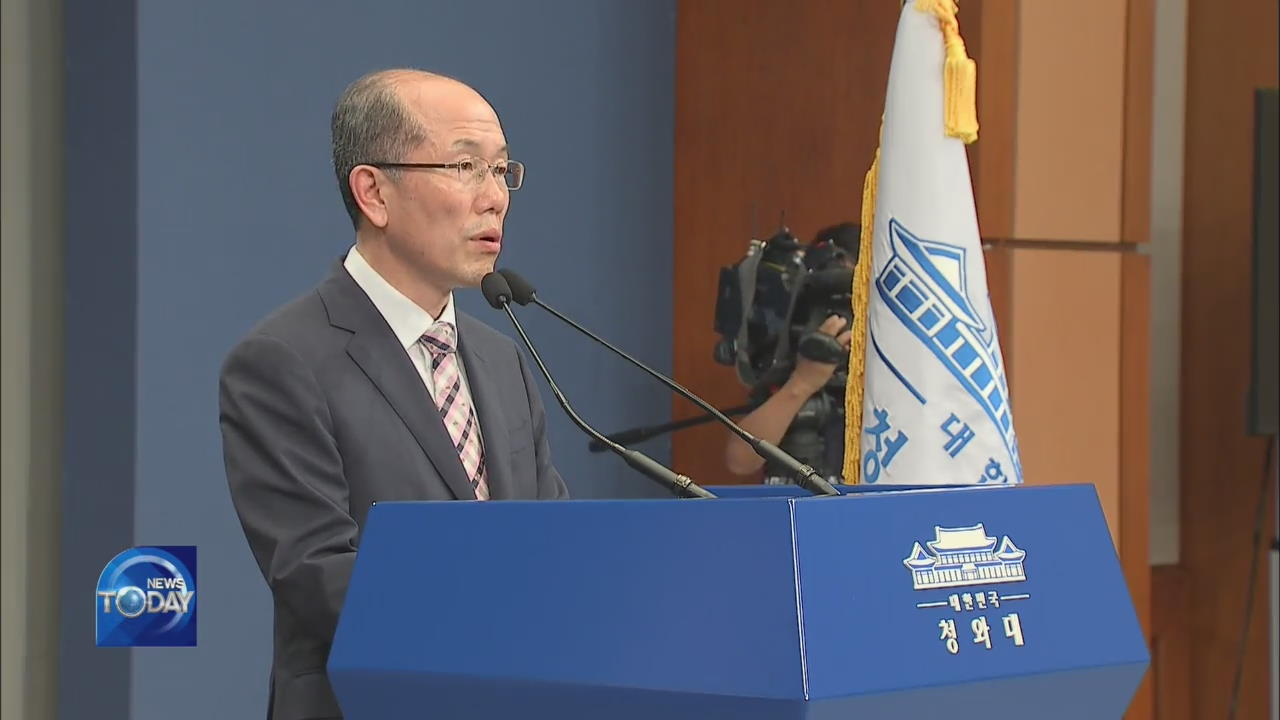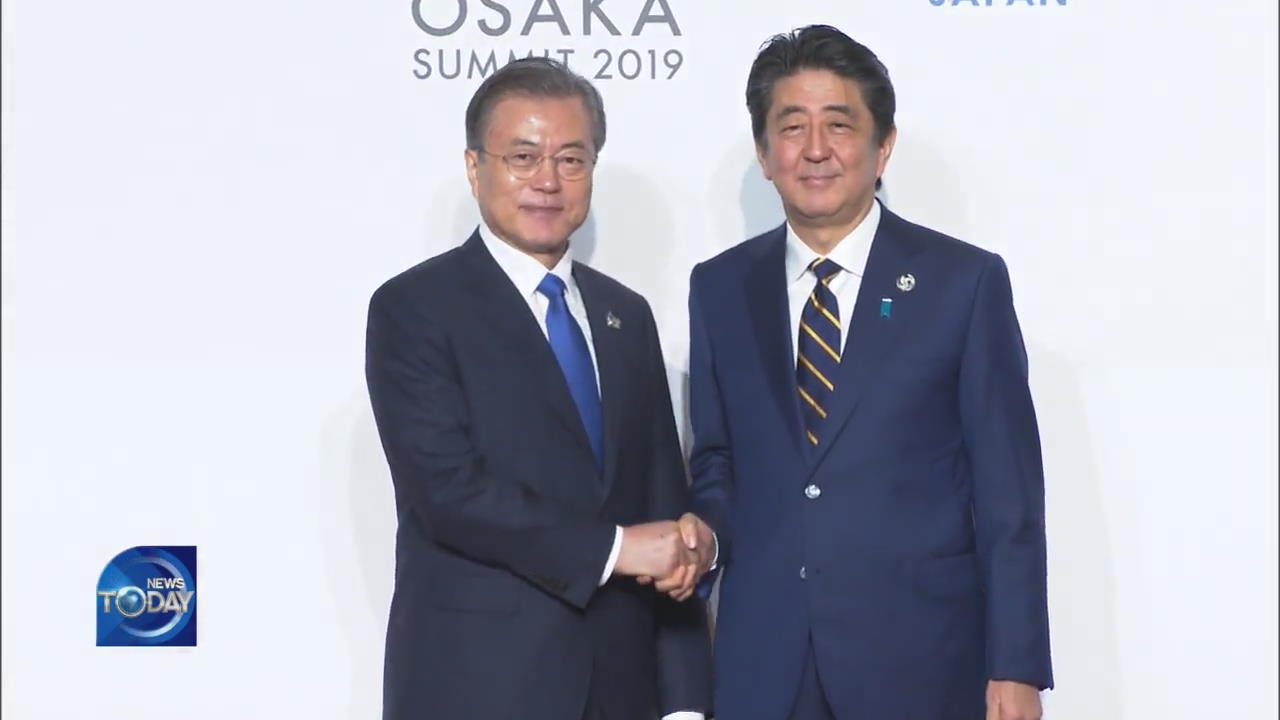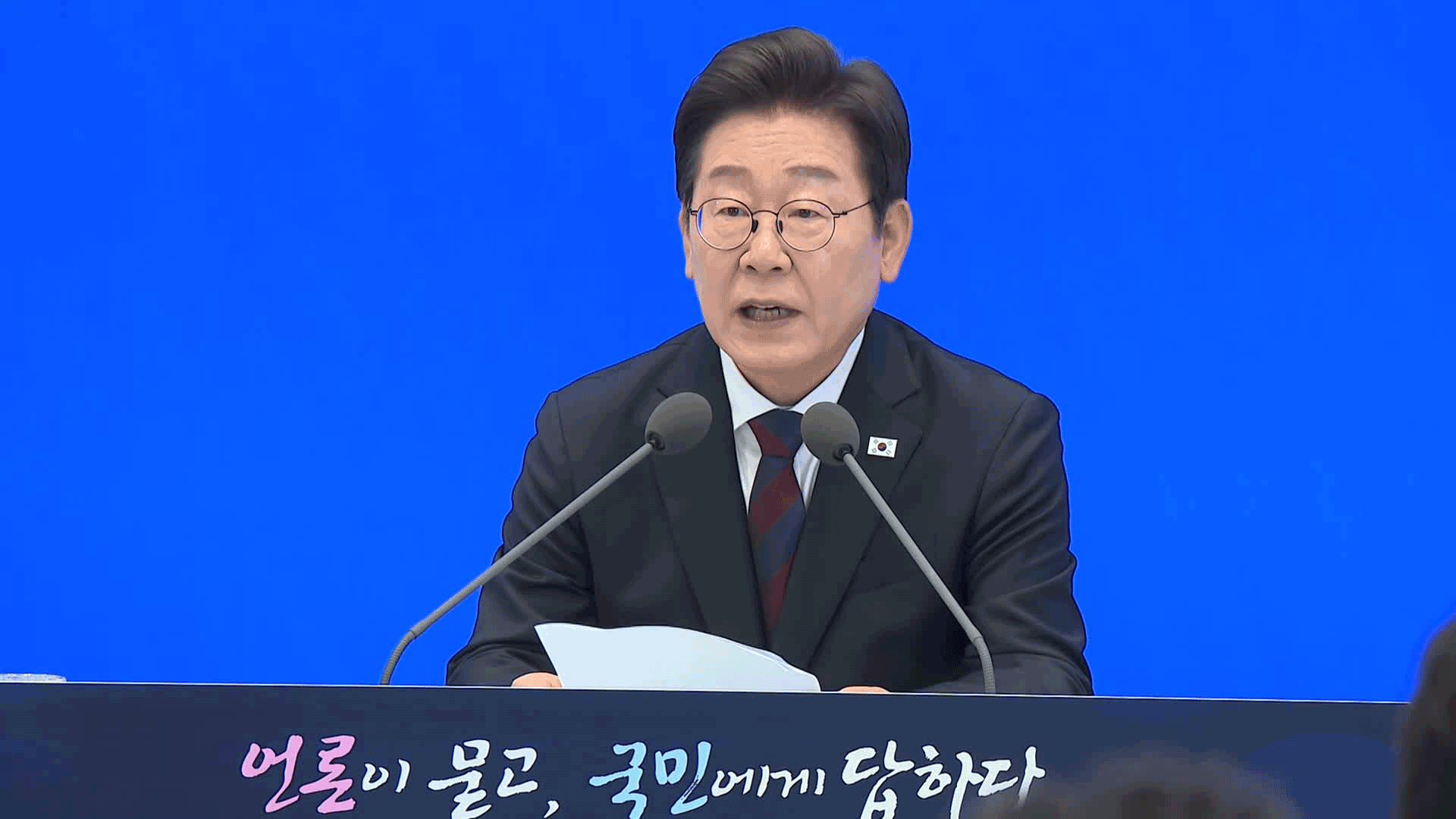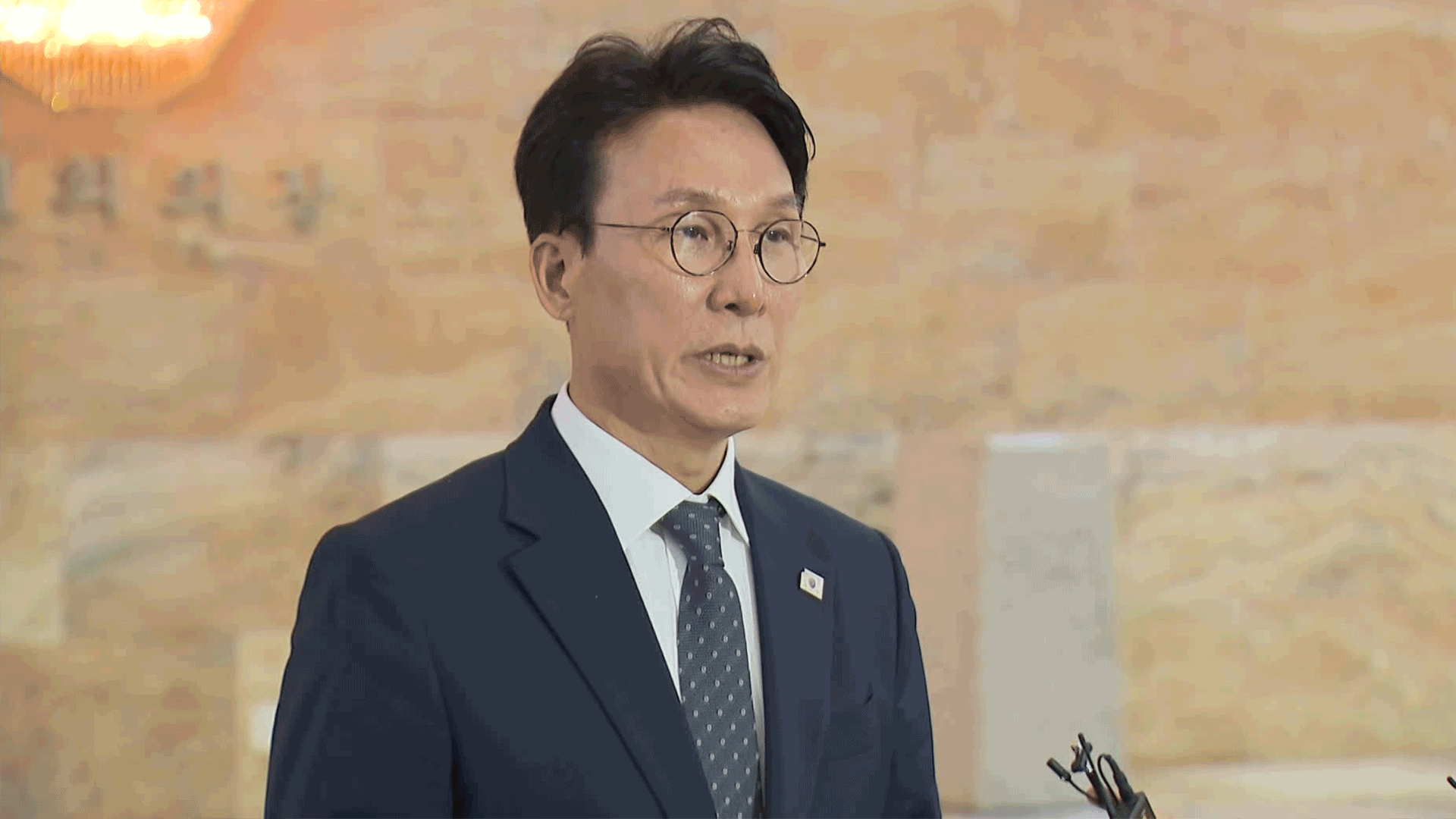SOUTH KOREA TO TERMINATE GSOMIA
입력 2019.08.23 (15:05)
수정 2019.08.23 (16:58)
읽어주기 기능은 크롬기반의
브라우저에서만 사용하실 수 있습니다.
[Anchor Lead]
The South Korean government has decided not to extend its military intelligence sharing pact with Japan. Seoul said it can no longer share sensitive information with Tokyo because of the changes in the national security environment, between the two nations caused by Japan's economic retaliation.
[Pkg]
The General Security of Military Information Agreement known as GSOMIA was a foundation of military intel sharing between South Korea and Japan over the past two years and nine months. The Presidential office announced the decision to terminate the pact.
[Soundbite] KIM YOU-GEUN(CHEONG WA DAE NATIONAL SECURITY OFFICE) : "The government has decided to end the GSOMIA pact on military intelligence protection between South Korea and Japan."
Seoul cited Tokyo's removal of South Korea from its whitelist without a clear explanation as the biggest reason for this decision. The top office said the Japanese government caused significant changes in bilateral cooperation on national security by citing national security and damaged mutual trust as reasons behind its decision to remove South Korea from its list of trusted trading partners.
[Soundbite] KIM YOU-GEUN(CHEONG WA DAE NATIONAL SECURITY OFFICE) : "By removing Korea from its whitelist, Japan caused serious changes in bilateral cooperation on national security."
Seoul also believes GSOMIA offers few benefits to South Korea. According to the Cheong Wa Dae, demand for military intel shared with Japan has decreased recently, and this year's seven rounds of information exchanges following North Korea's firing of short-range missiles were also requested by Tokyo. Seoul maintained the pact so far in light of the importance of information sharing with Japan and the United States. However, there is no more reason to do so, as Tokyo does not view South Korea as its national security partner.
[Soundbite] KIM YOU-GEUN(CHEONG WA DAE NATIONAL SECURITY OFFICE) : "Keeping the agreement made to help exchange sensitive military information does not meet our national interests."
The government plans to notify Japan of its decision to terminate the pact by August 24, the deadline for its extension.
The South Korean government has decided not to extend its military intelligence sharing pact with Japan. Seoul said it can no longer share sensitive information with Tokyo because of the changes in the national security environment, between the two nations caused by Japan's economic retaliation.
[Pkg]
The General Security of Military Information Agreement known as GSOMIA was a foundation of military intel sharing between South Korea and Japan over the past two years and nine months. The Presidential office announced the decision to terminate the pact.
[Soundbite] KIM YOU-GEUN(CHEONG WA DAE NATIONAL SECURITY OFFICE) : "The government has decided to end the GSOMIA pact on military intelligence protection between South Korea and Japan."
Seoul cited Tokyo's removal of South Korea from its whitelist without a clear explanation as the biggest reason for this decision. The top office said the Japanese government caused significant changes in bilateral cooperation on national security by citing national security and damaged mutual trust as reasons behind its decision to remove South Korea from its list of trusted trading partners.
[Soundbite] KIM YOU-GEUN(CHEONG WA DAE NATIONAL SECURITY OFFICE) : "By removing Korea from its whitelist, Japan caused serious changes in bilateral cooperation on national security."
Seoul also believes GSOMIA offers few benefits to South Korea. According to the Cheong Wa Dae, demand for military intel shared with Japan has decreased recently, and this year's seven rounds of information exchanges following North Korea's firing of short-range missiles were also requested by Tokyo. Seoul maintained the pact so far in light of the importance of information sharing with Japan and the United States. However, there is no more reason to do so, as Tokyo does not view South Korea as its national security partner.
[Soundbite] KIM YOU-GEUN(CHEONG WA DAE NATIONAL SECURITY OFFICE) : "Keeping the agreement made to help exchange sensitive military information does not meet our national interests."
The government plans to notify Japan of its decision to terminate the pact by August 24, the deadline for its extension.
■ 제보하기
▷ 카카오톡 : 'KBS제보' 검색, 채널 추가
▷ 전화 : 02-781-1234, 4444
▷ 이메일 : kbs1234@kbs.co.kr
▷ 유튜브, 네이버, 카카오에서도 KBS뉴스를 구독해주세요!
- SOUTH KOREA TO TERMINATE GSOMIA
-
- 입력 2019-08-23 15:04:32
- 수정2019-08-23 16:58:38

[Anchor Lead]
The South Korean government has decided not to extend its military intelligence sharing pact with Japan. Seoul said it can no longer share sensitive information with Tokyo because of the changes in the national security environment, between the two nations caused by Japan's economic retaliation.
[Pkg]
The General Security of Military Information Agreement known as GSOMIA was a foundation of military intel sharing between South Korea and Japan over the past two years and nine months. The Presidential office announced the decision to terminate the pact.
[Soundbite] KIM YOU-GEUN(CHEONG WA DAE NATIONAL SECURITY OFFICE) : "The government has decided to end the GSOMIA pact on military intelligence protection between South Korea and Japan."
Seoul cited Tokyo's removal of South Korea from its whitelist without a clear explanation as the biggest reason for this decision. The top office said the Japanese government caused significant changes in bilateral cooperation on national security by citing national security and damaged mutual trust as reasons behind its decision to remove South Korea from its list of trusted trading partners.
[Soundbite] KIM YOU-GEUN(CHEONG WA DAE NATIONAL SECURITY OFFICE) : "By removing Korea from its whitelist, Japan caused serious changes in bilateral cooperation on national security."
Seoul also believes GSOMIA offers few benefits to South Korea. According to the Cheong Wa Dae, demand for military intel shared with Japan has decreased recently, and this year's seven rounds of information exchanges following North Korea's firing of short-range missiles were also requested by Tokyo. Seoul maintained the pact so far in light of the importance of information sharing with Japan and the United States. However, there is no more reason to do so, as Tokyo does not view South Korea as its national security partner.
[Soundbite] KIM YOU-GEUN(CHEONG WA DAE NATIONAL SECURITY OFFICE) : "Keeping the agreement made to help exchange sensitive military information does not meet our national interests."
The government plans to notify Japan of its decision to terminate the pact by August 24, the deadline for its extension.
The South Korean government has decided not to extend its military intelligence sharing pact with Japan. Seoul said it can no longer share sensitive information with Tokyo because of the changes in the national security environment, between the two nations caused by Japan's economic retaliation.
[Pkg]
The General Security of Military Information Agreement known as GSOMIA was a foundation of military intel sharing between South Korea and Japan over the past two years and nine months. The Presidential office announced the decision to terminate the pact.
[Soundbite] KIM YOU-GEUN(CHEONG WA DAE NATIONAL SECURITY OFFICE) : "The government has decided to end the GSOMIA pact on military intelligence protection between South Korea and Japan."
Seoul cited Tokyo's removal of South Korea from its whitelist without a clear explanation as the biggest reason for this decision. The top office said the Japanese government caused significant changes in bilateral cooperation on national security by citing national security and damaged mutual trust as reasons behind its decision to remove South Korea from its list of trusted trading partners.
[Soundbite] KIM YOU-GEUN(CHEONG WA DAE NATIONAL SECURITY OFFICE) : "By removing Korea from its whitelist, Japan caused serious changes in bilateral cooperation on national security."
Seoul also believes GSOMIA offers few benefits to South Korea. According to the Cheong Wa Dae, demand for military intel shared with Japan has decreased recently, and this year's seven rounds of information exchanges following North Korea's firing of short-range missiles were also requested by Tokyo. Seoul maintained the pact so far in light of the importance of information sharing with Japan and the United States. However, there is no more reason to do so, as Tokyo does not view South Korea as its national security partner.
[Soundbite] KIM YOU-GEUN(CHEONG WA DAE NATIONAL SECURITY OFFICE) : "Keeping the agreement made to help exchange sensitive military information does not meet our national interests."
The government plans to notify Japan of its decision to terminate the pact by August 24, the deadline for its extension.
이 기사가 좋으셨다면
-
좋아요
0
-
응원해요
0
-
후속 원해요
0










![[HEADLINE]](https://news.kbs.co.kr/data/news/2019/08/23/4268739_10.jpg)


![[단독] 도이치 주포 “김건희, 내 덕에 떼돈 벌어…22억 원 주문”](/data/news/2025/07/03/20250703_KpuU43.png)
![[단독] “쪽지 얼핏 봤다, 안 받았다”더니…CCTV에선 문건 챙긴 이상민](/data/news/2025/07/03/20250703_Lv3LjI.png)


이 기사에 대한 의견을 남겨주세요.